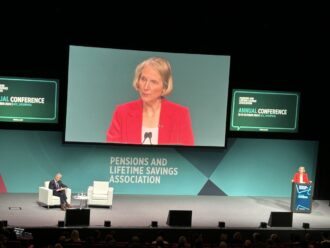Britain’s longest serving pension minister is back at the Department for Work & Pensions (DWP).
Guy Opperman has been re-appointed as pensions minister, a role he previously held for more than five years. Yet returning to the role is the latest move in what could be described as a hokey-cokey.
He was out when he resigned with a group of MPs that led to the fall of Boris Johnson as prime minister. He was back in the role once Boris had gone, but then out again when Liz Truss became prime minister to make way for Alex Burghart, who lasted less than a month in the role. Now, he is in again as Rishi Sunak has moved into Number 10.
The one change from when Opperman last held the pensions brief, is his title, which has been beefed up. He was previously under secretary, but is now Minister of State for Work & Pensions. Whether he holds the pensions brief is still unclear.
Opperman is not the only new appointment at the DWP.
Mel Stride becomes Secretary of State for Work & Pensions, but his brief will be on disability policy.
Opperman is joined by Tom Pursglove, who has also been named as Minister of State for Work & Pensions, but his brief is not clear.
To complete the department’s overhaul, Mims Davies and Laura Trott become Parliamentary Under Secretaries of State for Work & Pensions.
A key issue for the new minister will be whether he, and the overall team, remains committed to the triple lock, something that will become clearer when the fiscal statement is announced on November 17.
Liz Truss pledged her support for the triple lock only days before her departure from Number 10, but Rishi Sunak and Chancellor Jeremy Hunt have not made the same commitment.
Abandoning the state pension increase in line with inflation would break a key commitment set out in the 2019 Conservative manifesto.
Opponents of the triple lock said it would cost an extra £21bn by the next general election, according to stockbroker Interactive Investor.
The Policy Exchange, the right wing think tank where Sunak worked before becoming an MP, has already called on the government to replace the triple lock with an arrangement that pegs the state pension to earnings. This would save £16bn during the remainder of this Parliament, the think tank said.





Comments